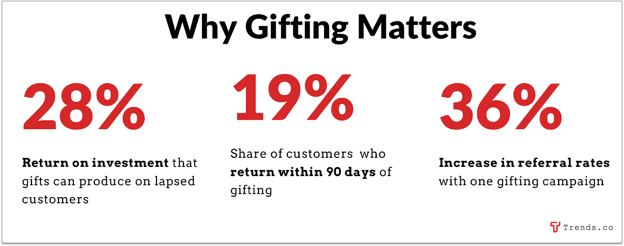
Every day, entrepreneurs across the country are taking significant personal risks, creating new companies, and boldly paving previously nonexistent paths forward. They pour their passion, authenticity, and, oftentimes, their finances into these ventures — and there’s no guarantee of success. Everyone has ups and downs on a daily basis. But in my experience as an entrepreneur, the highs are higher, and the lows are lower.
I’m not the first to observe that there’s no way to truly prepare for becoming an entrepreneur. It’s a hard journey, and there’s no shortage of advice on how to navigate all the challenges that are thrown at you. And while you are your own boss and control more of your company’s destiny, there is a big topic that one can never prepare for.
Starting a company is not just about doing and executing your vision. It is also, and maybe more importantly, about how it feels.
We all know that entrepreneurs need a business plan, but I believe they also need another type of plan: An emotional roadmap to help them better respond to ups and downs of the ride. Here are some stories from my own experience on what to expect.
Anger
It’s 2004, on a cold, rainy day — fitting weather for what could have been the lowest point of my career. I’ve just walked out of a conference room where I had agreed to step down as CEO of Paycycle, a company that I co-founded. While it was one of the most difficult moments in my life, it was not unexpected. The company was successful, but I had let a critical problem linger too long, and I was full of emotion.
I was angry — not at the board or the company, but at myself. I walked to my car, turned on the windshield wipers and the radio. As I drove down Route 280, a song came on: “I Can See Clearly Now” by Jimmy Cliff. This was exactly what I needed to hear.
Within about 10 minutes, I had gone through the entire cycle of grief, beginning with anger but ending with acceptance. By giving myself the space to deal with these emotions, it enabled me to have the clarity needed to see that the company was bigger and more important than me. Thankfully, I also had a bias toward action. I took that experience and emotion and turned it into a powerful lesson that left me more driven than ever to create something new, and to evolve my leadership to stay as much in front of business challenges as possible.
Tip: Feel the hard feelings, name them, and internalize them. But don’t wallow, keep moving. Navigating the journey of entrepreneurship is partly about the ability to take those feelings and apply them to your leadership and to something new.
Fear
Starting a company is like putting everything (and I mean everything) on red at the roulette table. It’s more than a massive bet on yourself. It’s your passion, your drive, and your vision that will be put to the test. Will people like your idea? Will anyone want to work for you? Will you have enough cash to fund an order or make payroll? Particularly in those early days, you may feel alone at times.
The fear of failure used to keep me up at night. But then I got some advice from a coach. He said, “The moment you’ve been hired, accept that you’ve been fired.” That approach was liberating, and I think the same is true of starting a company: Once you have an idea, accept that it will be rejected (by some). The worst-case scenario no longer hangs over you. It’s a reality that you can deal with, and it will never get in your way.
The hard truth is that entrepreneurs need to be prepared for someone to tell them, or for data to make them feel as though their baby is ugly or their idea isn’t working. The important thing is to not let that distract you from making any necessary changes to improve it. Don’t fear it, expect it.
Failure is a necessary part of learning and growth, and I believe the best way to fight it is to accept it as part of the process.
Tip: How you choose to respond to the fear can create resiliency and longevity. By accepting failure or rejection as necessary to growth gives you the freedom to act confidently and respond constructively, instead of defensively.
Responsibility
I’ve always thought that the adage, “It’s only business” diminishes the purpose and value of our work, particularly for entrepreneurs. In the beginning, the business is your livelihood — how you afford to put food on the table and live the life you want. As your business becomes more successful and you start hiring more employees, it isn’t just your livelihood on the line — it’s theirs, too. There are more decisions to make, and they get harder. That responsibility is awesome, and at times, very overwhelming.
I felt that weight during the 2008 financial crisis when Bill.com was in its early days, and I was looking at the reality of our cash flow. I knew that the math didn’t lie. If the business was to survive, I had to make the tough decision to lay off 40 percent of our staff. The decision was my own, and there was no one to blame or cast as a villain. Only me. Ultimately that decision was extremely hard but also extremely essential to the company’s survival at the time. While we were able to hire back some of those key players later, the lesson and the feelings of the buck stopping with me have remained.
Tip: When you start and grow a business, the responsibility for making tough calls grows in proportion to the scale of that business, so be prepared to continue making tough calls every day.
Joy
It isn’t all hardship. If you’re a parent, you may recall feeling how your capacity for love grows with every passing year, and the same is true for entrepreneurs. Your capacity for joy grows as a business owner.
After the hard economic times of Bill.com’s early days, we started to hit our stride. We grew steadily over time. We created something enduring. And suddenly, it became much bigger than me. It began to build on its own momentum, adding value to business owners and accountants all over the country.
And then, 15 years after that rainy, angry day when I decided to create Bill.com, on a crisp December morning in 2019, I found myself on the floor of the NYSE with my team and family. I pressed a button on a historic balcony and heard the sound of a familiar bell, and was flooded with gratitude for everything I faced along the way to get to this moment. We were far from an overnight success, but those same investors who wanted me to step down from Paycycle were standing by my side.
As Bill.com entered the public markets, I found myself crying — happy tears, of course, but deep with meaning. This moment represented not just our success, but the grit, hope, and effort that every entrepreneur pours into their business. We’d created something lasting. Something that was helping other entrepreneurs meet their own bold dreams.
Their joy was my joy, and it still is to this day.
Tip: Start a company for the right reasons. Set out to build something bigger than you, something enduring. Financial success is great, but serving others and creating a lasting impact will give you a more meaningful and beautiful joy than you thought possible. I believe that when you focus on creating a lasting impact, business success will follow.
I’m fond of a quote from Theodore Roosevelt’s famous “The Man in the Arena” speech that one of my earliest investors shared with me. It reads, “The credit belongs to the [person] in the arena … who comes up short again and again … but who does actually strive to do the deeds.” In the end, the entrepreneur is someone who “knows the triumph of high achievement, and who at worst, if he fails, at least fails daring greatly.”
To be an entrepreneur is to taste the sweetness of success and the bitter burn of defeat, and when you’re prepared — not just with education or experience, but with your emotions and expectations — you can truly dare greatly.








More Stories
9 Easy Ways To Reduce Business Operating Costs For Startups
Shopping ethically still a priority for Australians, despite cost of living concerns
Onclusive Expands US Footprint with Critical Mention